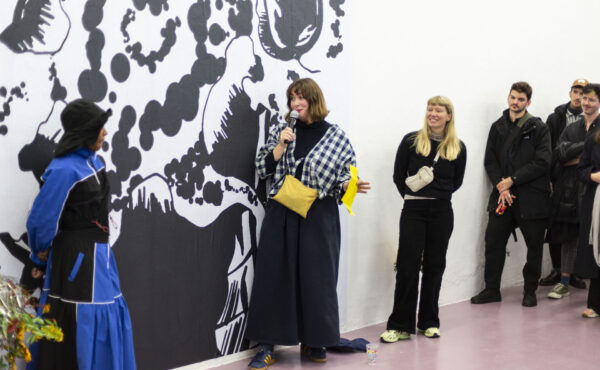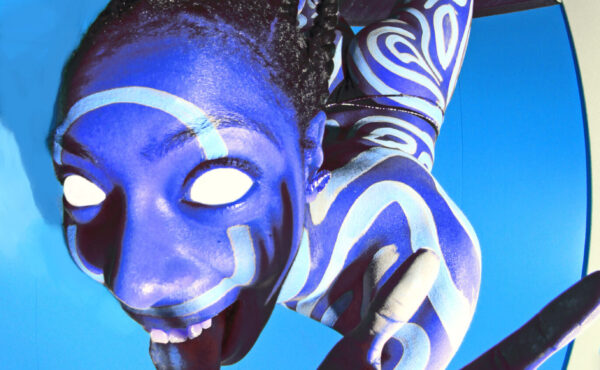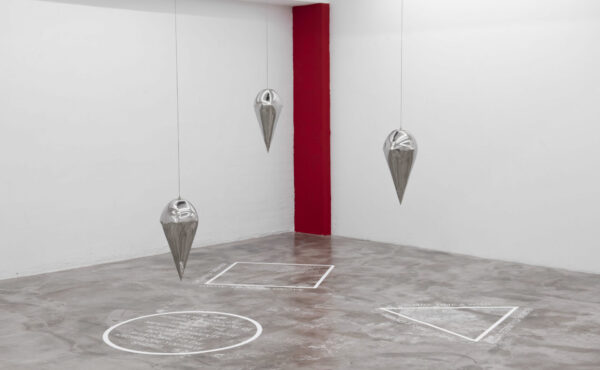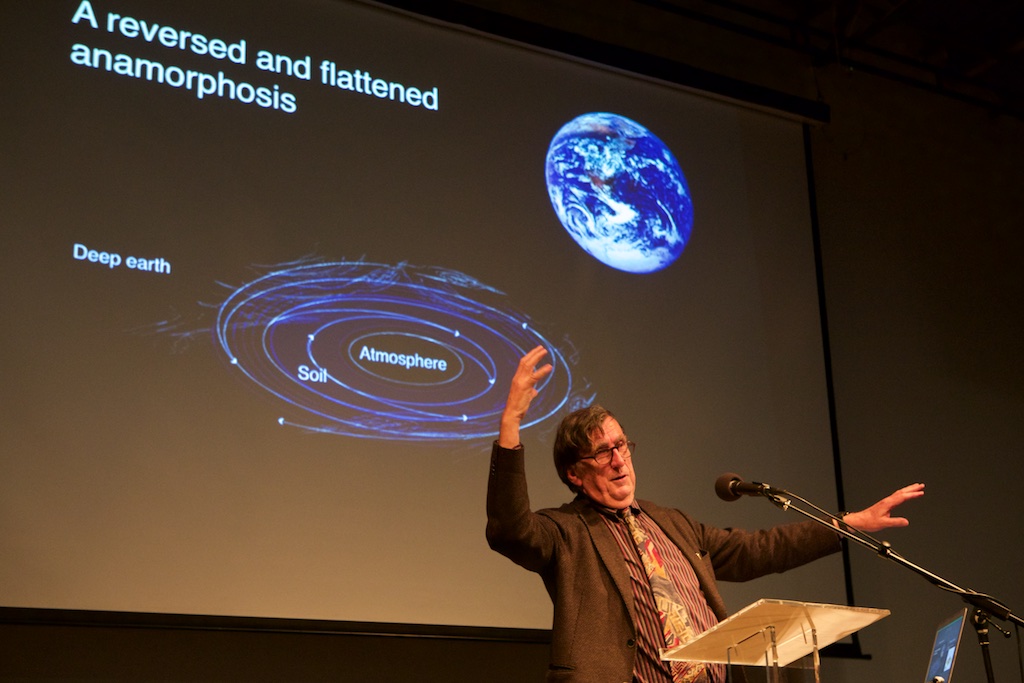
Artists, scientists, politicians: Unite and Let’s face Gaia!
As part of his publicity tour of his new book Facing Gaia in Amsterdam, French philosopher Bruno Latour presented a talk at Veem House for Performance especially for an art related audience. How can art and culture relate to the new climatic regime, a new way of looking at nature, as sketched in Facing Gaia?
In a fully packed Veem, Bruno Latour was invited to elaborate on his new book Facing Gaia and make a connection with art at large. The book is roughly divided up into “lectures” and seems to be disconnected from the panicky and emotional tone which characterizes most literature on climate change, instead engaging with the topic in an intellectual and speculative manner. The evening started with an introduction by theatremaker Lotte van den Berg, who took up the idea of a Parliament of Things and developed a work that related to this speculative platform. Here, instead of the usual parliament of people, meetings and assemblies are held from the perspective of things, as things.
Latour’s endorsement of the parliament of things comes from the fact that modernity systematically refused to consider the rights of objects. By means of a parliament of things, we can make them speak their voices and come to their rights and agency. Before the lecture, the parliament of things discussed whether the ecology of the North Sea and the political system could meet. Present were for example algae, the military and fish. This redefining of the non-human as agents is one of the many new shifts in thinking about climate changes that Latour identified in his lecture and tried to make relevant for art in particular.
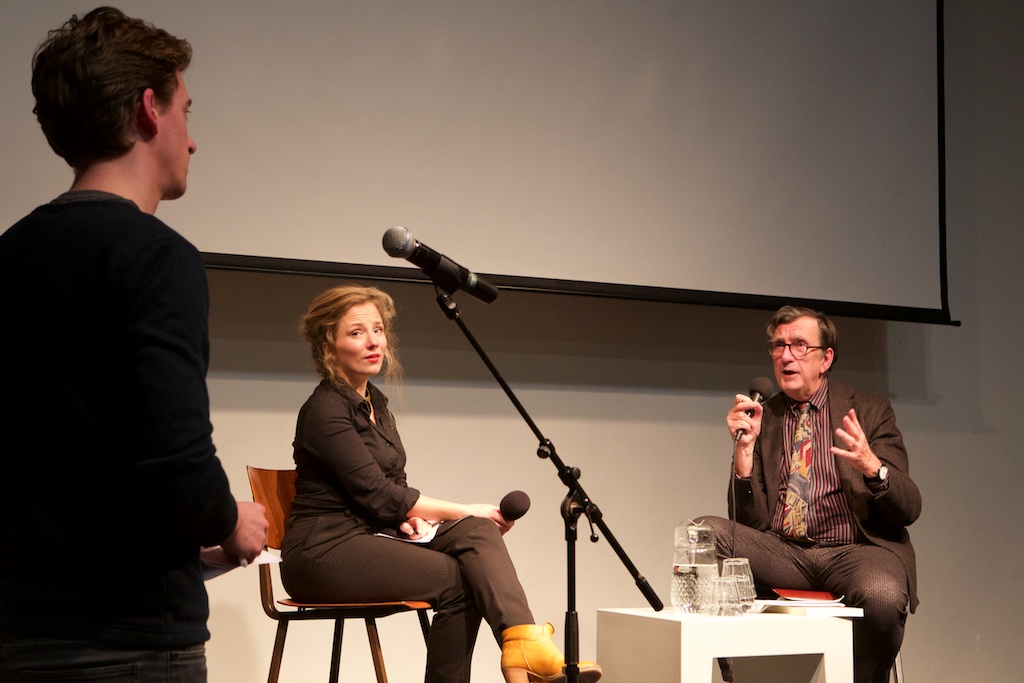
One of these shifts, is a new geohistorical materiality. This new trend can also be traced in art that renders us sensitive to land, the earth, and soil. To illustrate, the Duchamp Prize was awarded to Joana Hadjithomas and Khalil Joreige, who made work containing soil of Lebanon, questioning possession and property. The mix between the aesthetics of science, politics and art is what needs to be activated in order to make politicians aware of climate change and the new climatic regime. Theatre, for example, can be a stage to express contradictions, where alternative plots can be explored, where non-speaking entities can be made to speak, and where the discussion after the play can deliver valuable insights.
Latour also gives new attention to the difficulty of representing non-humans. Politics today entails no more than value and opinion affirmation or weaponized sensitivity, as the Americans would call it. We need to explore what it means to have a voice and learn to articulate questions we can pose to politics. The only way to restart this is trough fiction: Latour emphasizes, ‘fiction is key!’. Connected to that is another medium of interest, the exhibition. In a way, an exhibition has the power to summarize the ecological crisis and can partially overcome the difficulty of representing the earthly condition: what is this earthly condition and how to materialize it? It is exactly through the medium of the exhibition that we can do fiction: it can be used to hold many things, such as workshops, parliaments of things, but above all, it could provide a demonstration of alternative cosmologies. Latour proposes that we can use these alternative cosmologies to build a space where you can ‘feel the difference’. The space itself is then used as experimental workshop to find alternative ways of thinking and talking.
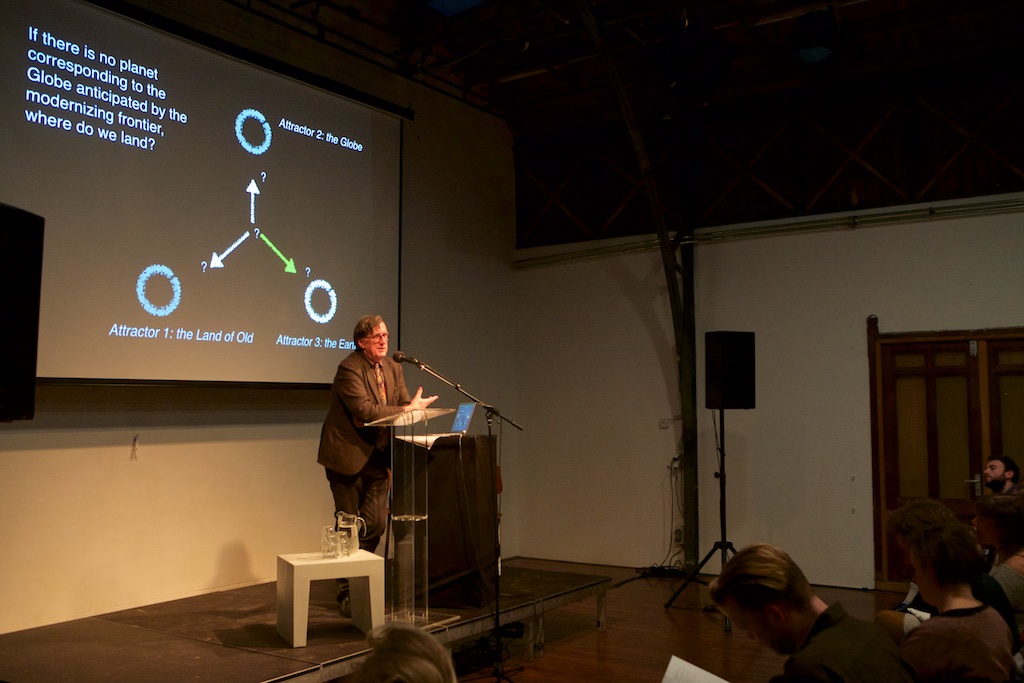
The three aesthetics of science, politics and art that Latour mentions are used to render us sensitive to the new climatic regime. In modernity, we abstracted ourselves from the earth to leave it behind. But after the disappointment of globalization, everyone turned away from the great horizon that had in the meantime disappeared. That is also the reason why suddenly everybody goes back to issues like land, territories and states, and why borders, protection and boundaries are becoming so important again, and why Trump wants to build a wall. Latour highlights this shift as an important moment in politics that also implies a technical and artistic difficulty. The task of artists is to engender a shift sideways, not backwards. This move requires a re-understanding of the notion of territory and how far we have to go to mobilize alternative cosmologies. One of the alternatives is Gaia, a small biofilm, which is the place where all our experiences reside. It is not the globe, universe or planet, but a small film. This alternative is an example of what we need: an exchange on all levels of science, politics and art. According to Latour, we need to invent links between these three disciplines, as a collective production of alternative cosmologies.
Rick Dolphijn, professor at Universiteit Utrecht, retroactively contextualized Latour’s Facing Gaia in the thinking of James Lovelock and Lynn Margulis, who proposed the earth as a series of becomings. But also Michel Serres already said we have to deal with Gaia, and therefore, Latour’s book is of such importance today. The moderns were looking backwards and were thus surprised by the emergence of Gaia. The paradox of modernization is that it lost its contact with materiality, with what is happening on earth. In order to rethink this, we need to rethink politics and search for new alliances in thought, and social democratic and creative alliances. Dolphijn concludes with a beautiful call for action: we shouldn’t move away from the problem like the moderns, but we need to find ways to face Gaia!
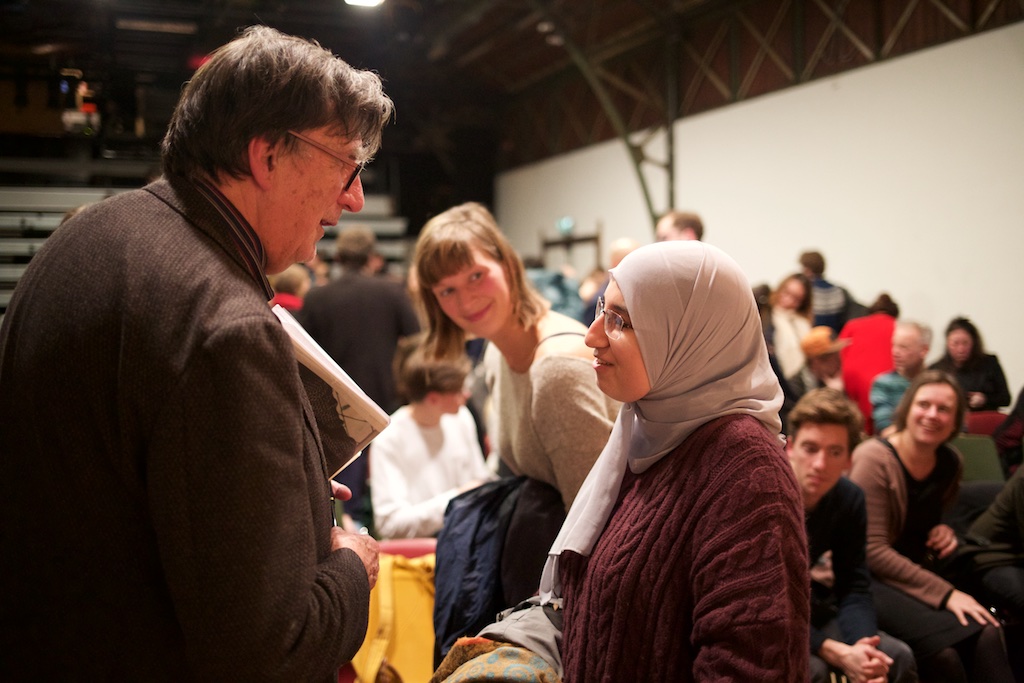
With Facing Gaia, Latour starts from humanity’s place in nature and the ways we think about it. He is a charming and elegant speaker who can make his theory relevant and appealing for the audience with a dash of humor. He takes art seriously and stresses the importance of art in contributing to new ways of facing Gaia. He makes us rethink our position towards the new climatic regime and does not fall back on the clichés of ecological disaster or skepticism. Instead, he offers us tools that we can use as curators, artists, scientists and even politicians to reach a deeper understanding of what is going on and how we can use our practices to create fiction and alternative cosmologies, so we can finally face Gaia.
Facing Gaia by Bruno Latour, Book Launch, Veem House For Performance, 28.11.2017
Corine van Emmerik
is art historian
